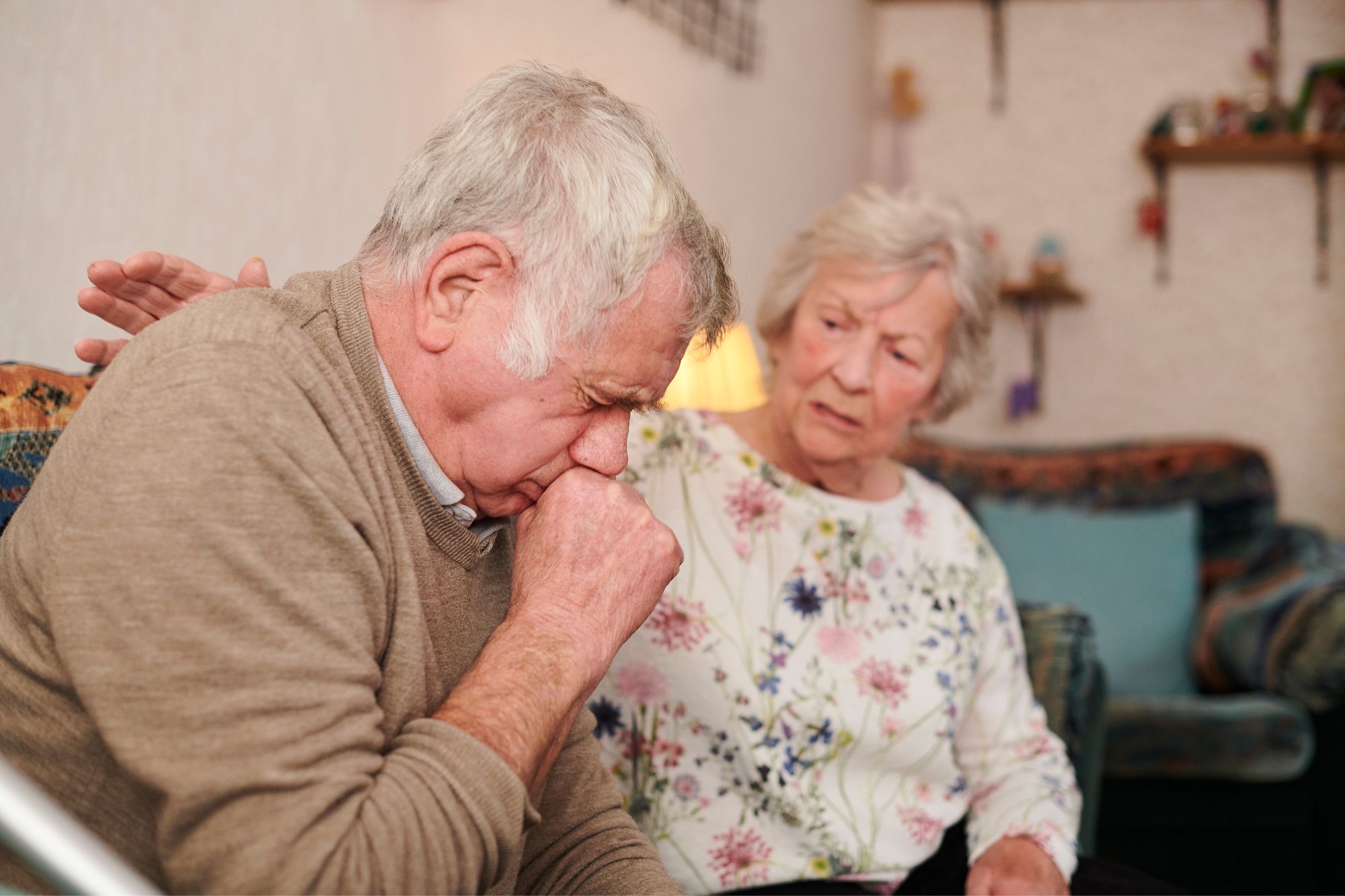An illness called pneumonia causes the air membranes of one or both lungs to become inflamed. These air sacs can swell with liquid or abscess (purulent material), leading to a cough that produces pus and phlegm, a temperature, chills, or breathing difficulties. Pneumonia may be brought on by several different species, including bacteria, viral, and fungi.
The severity of pneumonia may range from minor to life-threatening. The most vulnerable groups are newborns and children, those over 65, and those with health conditions or weaker immune systems.
Bilateral Pneumonia
Bilateral interstitial pneumonia is a severe illness that can aggravate and damage your lungs. It is one of the numerous interstitial lung illnesses which harm the tissues surrounding the lungs’ tiny air sacs. One kind of pneumonia could be contracted as a consequence of COVID-19. Bilateral pneumonia affects both lungs.
Double Pneumonia
A lung disease known as double pneumonia attacks both of the lungs. The inflammation of the infection causes the alveoli, and lung stapes, to swell with liquid or pus. It’s indeed difficult to breathe due to this irritation. The main common complications of pneumonia include infections and bacteria.
Symptoms Of Pneumonia In Adults
The symptoms may change depending on the cause of your pneumonia, age, and overall general health. They often grow over a few days.
Common signs of pneumonia involve:
- if you cough and breathe, your chest hurts
- cough that is phlegmatic or mucus-producing
- fatigue and hunger loss
- Heat, perspiration, and chills
- diarrhea, vomiting, and nauseous
- breathing difficulty
Babies and toddlers may not exhibit any symptoms of the illness. Or they could vomit, get a fever or cough, seem agitated or exhausted and lack stamina, have trouble breathing, or even have difficulty eating.
The Diagnosis of Pneumonia
Since the pneumonia symptoms can vary and frequently resemble those associated with the common cold and influenza, it can occasionally be challenging to diagnose. Your physician will inquire regarding your medical records, conduct a physical examination, and order specific tests to determine the diagnosis of pneumonia and attempt to pinpoint the bacteria producing the sickness.
Medical Background
Your doctor may inquire about your concerns, including when and how they first appeared. You could be questioned about potential exposures to determine whether your condition is brought on by germs, viruses, or fungus, such as:
- Some recent journeys
- Your line of work
- involvement with animals
- contact ill individuals at work, education, or home
- If you have experienced a different ailment
What Distinguishes Bacteria From Viral Pneumonia?
Every pneumonia is an irritation brought on by a respiratory infection, but depending on if viruses, bacterium, or fungus is to blame, you may experience various symptoms.
Viral pneumonia is less prevalent and usually not as severe as bacterial pneumonia. The hospital stay is much more likely to be required. Providers use antibiotics to cure bacterial pneumonia. Flu-like signs are more familiar with viral pneumonia, which is more prone to go away by itself. Viral pneumonia typically doesn’t require a specific course of therapy.
What Causes Pneumonia In The Elderly?
Several bacteria could bring on pneumonia. Germs and pathogens are among the most prevalent in the oxygen we breathe. Usually, your system protects you from harmful bacteria getting into your lungs. Even though your fitness usually is strong, these viruses occasionally can overwhelm your immune response.
Depending on the specific kinds of bacteria that cause illness and how you contracted the infection, there are several varieties of pneumonia.
General Populace Pneumonia
One of the most typical kinds of pneumonia is community-acquired one. It happens outside of medical facilities like hospitals. It could result from:
Bacteria. Streptococcus pneumonia is the frequent leading source of bacterial pneumonia in the United States. This kind of pneumonia may develop independently or following influenza or cold. Lobar pneumonia is a disorder that can only affect the lobe of the lungs.
Organisms like bacteria. Mycoplasma pneumonia may also bring on pneumonia. Compared to other varieties of pneumonia, it often causes fewer severe symptoms. This sort of pneumonia, which usually isn’t serious enough to necessitate complete rest, is known informally as “walking pneumonia.”
Fungi. Individuals with poor immune systems and chronic health conditions are more likely to get this kind of pneumonia, as are those who have breathed high concentrations of the microorganisms. According to the region, the fungus that produces it might be discovered in the soil and bird excretions.
Virus strains, such as COVID-19. Pneumonia could be brought on by several of the germs that bring colds, as well as the flu. Viruses are the most likely source of pneumonia in kids under the age of five. Common viral pneumonia isn’t severe. But occasionally, it may get awful. Pneumonia from the 2019 coronavirus (COVID-19) can develop into an extreme case.
How Long Does Pneumonia Last?
The recovery process from pneumonia could be prolonged. Some individuals feel improved in one to two weeks and may resume their regular schedules. Others may require a month and more. For around a month, often, these people remain feeling exhausted.
Signs that pneumonia is improving;
- After one week, the fever should have subsided.
- Chest discomfort and mucus secretion should have significantly decreased after four weeks.
- After six weeks, the cough and shortness of breath should be reduced dramatically.
- Usually, symptoms should’ve just subsided after three months, yet you could still feel exhausted (fatigued)
Pneumonia Recovery
The kind of pneumonia patients determines their course of treatment, their illness, their age, and any other medical problems. Treatment aims to eliminate the virus and avoid consequences. You must strictly adhere to your medication regimen until you have healed completely.
Follow your doctor’s instructions while taking any drugs. You would be prescribed an antibiotic when bacteria causes your pneumonia. Although you will likely begin to improve in a few days, it’s crucial to finish the antibiotic. Stopping increases the likelihood that the illness will return and the microorganisms will become future treatment-resistant.
Antibiotics, as we know them, do not combat viruses. Your physician could recommend an antiviral medicine to treat bacterial pneumonia. But occasionally, symptom control and relaxation are all that’s required.
How To Get Rid Of Pneumonia Fast
- Get lots of sleep.
- When you’re ready, move around gradually; nevertheless, do not overdo it.
- Take all of the therapies that your doctor has advised.
- Eat a balanced diet.
- Prevent passive smoking and kick the habit.
- Attempt to avoid throat irritants like alcohol or pollution.
- Exercise your deep breathing.
- When starting an exercise program again, talk to your physician.
Under your doctor’s direction, try to transition gradually to your routine. Pay attention to any signals that the illness may be returning.
Can You Avoid Pneumonia?
So is there a way How to prevent pneumonia? Absolutely, consult your healthcare professional for further information about vaccinations. One typical origin of pneumonia is the flu. Due to this, receiving an annual flu vaccination can aid in preventing both influenza and pneumonia.
Additionally, there’s a pneumococcal vaccination. You will be shielded from a typical type of bacterial pneumonia. Persons older than 65 and kids under the age of five should receive this vaccination.
All adults and children with an enhanced danger of pneumococcal illness should also have the pneumococcal vaccination because of other medical issues.
Key Takeaway
First and foremost, treating the infection that is causing your pneumonia is essential.
This entails attentively adhering to your physician’s recommended course of action and getting enough sleep. Furthermore, assuming your pneumonia was bacterial in origin, swallow every antibiotic tablet in the container that your doctor advised you to.
However, after your initial symptoms subside, you can still feel miserable, have little energy, and struggle with a persistent cough. Sometimes, you could experience months of weakness.


